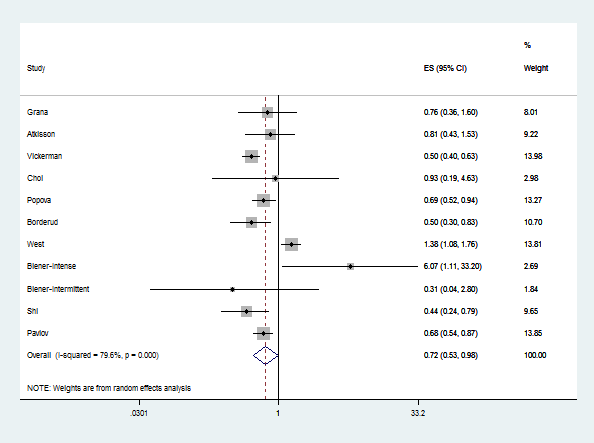March 18, 2015
Tonight at the World Conference on Tobacco Or Health, Michael Bloomberg announced that he and the Bill and Melinda Gates foundation were establishing a legal network to help countries fight off frivilous lawsuits against sensible tobacco control measures (like plain packaging).
This strategic decision will level the playing field for many smaller countries and make it harder for Big Tobacco to bully them.
I applaud this decision.
(For more information on this legal bullying, check out John Oliver's explanation here.)
March 17, 2015
Eric Lindblom, who headed the Office of Policy in the FDA Center for Tobacco Products and is now on detail at the Georgetown University School of Law, just published "Effectively Regulating E-Cigarettes and Their Advertising— and the First Amendment" in Food and Drug Law Journal. This paper is the an amazingly creative and incisive analysis of how to get out-of-control e-cigarette marketing under control as soon as the FDA achieves authority to regulate e-cigarettes.
Lindbloom notes that there are two possible justifications for allowing e-cigarettes on the market:
- The might help current smokers quit cigarettes.
- The might be an effective harm reduction strategy for current smokers.
He notes that there are several ways in which e-cigarettes could result in increased harm:
March 15, 2015
According to this post on a well-respected blog on global warming, http://www.desmogblog.com/2015/03/13/tobacco-gun-hire-james-enstrom-willie-soon-climate-change, James Enstrom, an epidemiologist with a long history of working for tobacco and other corporate interests, is urging people to file ethics complaints against me and other scientists who appear in the new movie "Merchants of Doubt" through our universities.
March 14, 2015
 There are now 11 pubilshed studies that compare quitting smoking among smokers who use e-cigarettes compared to smokers who do not use e-cigarettes (counting the two analyses Lois Biener did, one for intense e-cigarette users and one for intermittent e-cigarette users, as separate estimates).
There are now 11 pubilshed studies that compare quitting smoking among smokers who use e-cigarettes compared to smokers who do not use e-cigarettes (counting the two analyses Lois Biener did, one for intense e-cigarette users and one for intermittent e-cigarette users, as separate estimates).
Using all these estimates in a random effects meta-analysis shows a significant drop in quitting with an odds ratio of 0.723 (with a 95% confidence interval ["margin of error"] of 0.531 to 0.983). Thus, smokers who use e-cigarettes are about 30% less likely to quit smoking than smokers who do not use-ecigarettes.
An interesting detail is that there is significant heterogeunity among the studies (p<.001 this="" heterogenuity="" is="" due="" to="" the="" brown="" study="" removing="" it="" from="" analysis="" makes="" test="" non-significant="" does="" not="" change="" overall="" conclusion="" pooled="" estimate="" of="" effect="" e-cigarettes="" on="" quitting="" just="" gets="" a="" little="" bigger="" ci="" p="" but="" raise="" question="" what="" different="" about="" study.="">
March 13, 2015
Lat week the FDA fired or forced the resignations of several highly qualified and respected scientists from its Tobacco Products Scientific Advisory Committee because of an overly cautious reaction to a misguided court decision Like its decision to discount the health benefits of reduced smoking by the "lost pleasure" smokers experience when they stop or do not start smoking, this action sets a terrible precident not only for tobacco control but public health in general.
Here is the statement Tobacco Free Kids put out on March 5. I couldn't agree more..
FDA Errs in Removing Highly Qualified Scientists from Tobacco Advisory Committee – Decision Is Based on Misguided Court Ruling
Statement of Matthew L. Myers
President, Campaign for Tobacco-Free Kids
